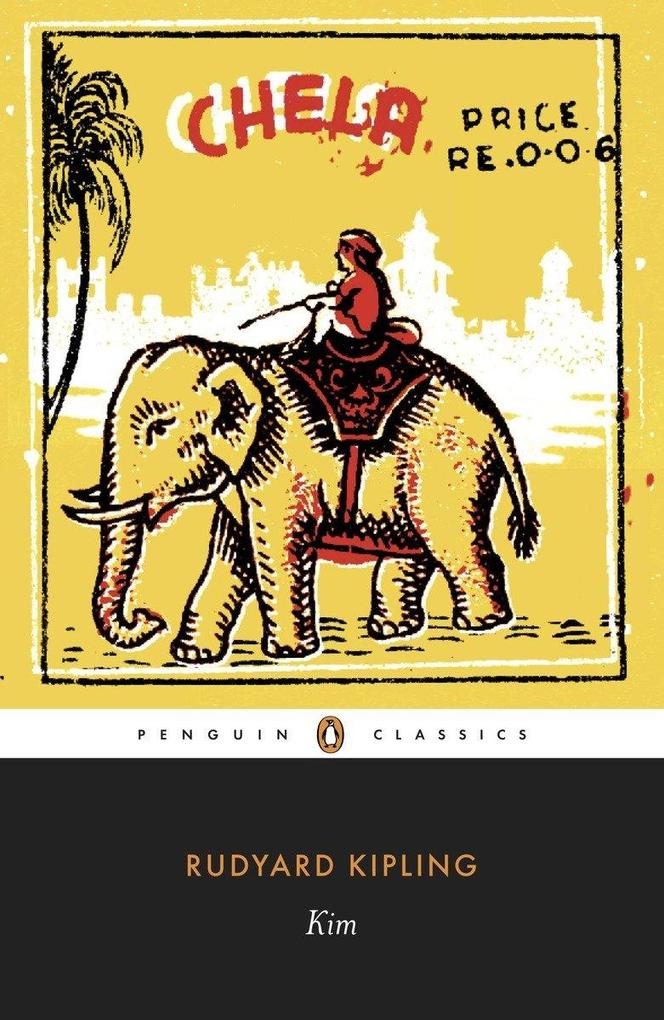
Zustellung: Fr, 27.12. - Mo, 30.12.
Sofort lieferbar
VersandkostenfreiBestellen & in Filiale abholen:
An epic rendition of the imperial experience in India, one of Kipling's greatest works
A Penguin Classic
Kim, orphaned son of an Irish soldier and a poor white mother, and the lama, an old ascetic priest, are on a quest. Kim was born and raised in India and plays with the slum children as he lives on the streets, but he is white, a sahib, and wants to play the Great Game of Imperialism; while the priest must find redemption from the Wheel of Things. Kim celebrates their friendship and their journeys in a beautiful but hostile environment, capturing the opulence of the exotic landscape and the uneasy presence of the British Raj. Filled with rich description and vivid characters, this beguiling coming of age story is considered Kipling's masterpiece.
For more than seventy years, Penguin has been the leading publisher of classic literature in the English-speaking world. With more than 1,700 titles, Penguin Classics represents a global bookshelf of the best works throughout history and across genres and disciplines. Readers trust the series to provide authoritative texts enhanced by introductions and notes by distinguished scholars and contemporary authors, as well as up-to-date translations by award-winning translators.
A Penguin Classic
Kim, orphaned son of an Irish soldier and a poor white mother, and the lama, an old ascetic priest, are on a quest. Kim was born and raised in India and plays with the slum children as he lives on the streets, but he is white, a sahib, and wants to play the Great Game of Imperialism; while the priest must find redemption from the Wheel of Things. Kim celebrates their friendship and their journeys in a beautiful but hostile environment, capturing the opulence of the exotic landscape and the uneasy presence of the British Raj. Filled with rich description and vivid characters, this beguiling coming of age story is considered Kipling's masterpiece.
For more than seventy years, Penguin has been the leading publisher of classic literature in the English-speaking world. With more than 1,700 titles, Penguin Classics represents a global bookshelf of the best works throughout history and across genres and disciplines. Readers trust the series to provide authoritative texts enhanced by introductions and notes by distinguished scholars and contemporary authors, as well as up-to-date translations by award-winning translators.
Mehr aus dieser Reihe
Produktdetails
Erscheinungsdatum
02. September 2013
Sprache
englisch
Seitenanzahl
liii
Reihe
Dover Thrift Editions: Classic
Autor/Autorin
Rudyard Kipling
Herausgegeben von
Harish Trivedi, Jan Montefiore
Weitere Beteiligte
Harish Trivedi
Verlag/Hersteller
Originalsprache
englisch
Produktart
kartoniert
Gewicht
315 g
Größe (L/B/H)
198/131/27 mm
Sonstiges
B-format paperback
ISBN
9780141442372
Entdecken Sie mehr
Pressestimmen
By the Winner of the Nobel Prize in Literature
A work of positive genius, as radiant all over with intellectual light as the sky of a frosty night with stars. The Atlantic Monthly
A work of positive genius, as radiant all over with intellectual light as the sky of a frosty night with stars. The Atlantic Monthly


















